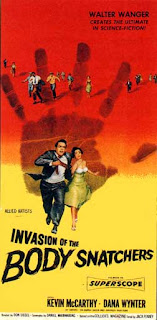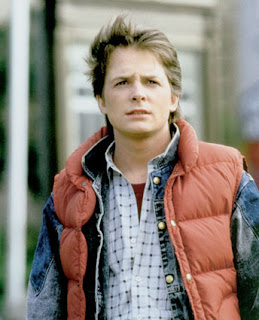 Lawrence of Arabia
Lawrence of Arabia is a classic David Lean epic, and a winner of eight Oscars, based on the memoirs of T. E. Lawrence. T. E. Lawrence (That's Thomas Edward, by the way,) was a British military officer who lead the Arab revolt against the Turks during World War I. He was well-educated, flamboyant, clever and theatrical ("The most shameless exhibitionist since Barnum & Bailey,") and egotistical. Basically, he’s awesome. He knows it, too. He is absolutely certain that he’s amazing, and because he’s so convinced that he’ll succeed at everything he does, he can do just about anything. He’s successful merely because he’s certain that he’ll succeed. In fact, when he does eventually have a major failure later in the movie, he starts to lose his grip on things a bit. He’s darn good at his job before that, though, and looks pretty much awesome in his white robes.
 Magnificent.
Magnificent.
I don’t find this movie boring, but I can understand why people do. There certainly is a whole lot of desert in it. Some people say there’s too much desert, but I say pshaw! There’s no such thing as too much desert! It’s well-filmed desert. Some of the best desert you’ll ever be seeing.

The word “sweeping” comes to mind.
All the visuals in this movie are stunning. Between the sweeping deserts and the huge crowds of people on camels, you have the cities in Arabia, and huge boats, and the shadows. The use of shadows in this movie is really good. When a scene mostly takes place in the desert, it would be hard not to see the shadows at all, but the movie really puts the shadows to good use. You watch the shadows almost as much as you watch the actual people. Not to mention Lawrence’s magnificent white Arabic robes.

That’s awesome right there.
The first half of this movie is probably better than the second half, just because the first half is on such a bigger scale. The first half has huge shots of desert and scenery, and generally seems more epic than the second half, which appears to my untrained eye to be filmed more conventionally. The first half is about Lawrence's rise to this giant heroic figure, and how he's leading the Arab revolt to triumph. Everyone marvels at him, everyone admires him. He's different - he says so himself. He can do anything. He accomplishes things that others have declared can't be done because Allah has willed it to be so. He goes against God and succeeds. He's built up to be this great epic power, and he leads the Arabs to levels of success that they hadn't been reaching before (mostly because of lack of organization, really). Nobody else had thought of them enough to really help out at all, because the English were just viewing them as a sort of side-project, but Lawrence saw a chance for them (and himself) to be great.
The second half is where everything falls apart, both Lawrence's reputation and the revolt. In the end, the revolt goes against the British, instead of with the British, and eventually fails. Lawrence is sent home by General Allenby of England and Prince Feisal of Arabia, because despite his exalted reputation, he's just a pawn in the hands of these political leaders, and now he is no longer useful. The movie ends, very suddenly and without any fuss or even a good image, with Lawrence riding in a little army car in the vague direction of England. It's very understated compared to the rest of the movie, and after all the grandeur that's come before it, seems really anticlimactic, which I think is the point. After all that, Lawrence is just sent home to ride motorcycles. Not a god, not a hero, not different, but just another insignificant soldier.
This is definitely the most complex movie I’ve watched so far. The story itself is relatively simple, but you’ve got all kinds of crazy themes floating around in this movie. Lawrence is culturally conflicted between Arabia and Britain – He wants to be a part of the Arab culture, but he’s really not Arabic, he’s British, and he hates that. I don’t really blame him there – it sucks to be British in Lawrence of Arabia world, where they’re trying to defeat the Turks so they can split the Arabian Peninsula with the French, while telling the Arabs that they can help if they want to. There's Lawrence's status as some kind of god among men, and his eventual fall from this status, and the motifs about legacy, racism, heroism, the magnificence of the desert, culture, politics, and the place we call home. Every single event in this movie symbolizes something else, and honestly, I've watched it twice and I still don't think I quite understand it. There's this huge section in the middle where Lawrence goes through this bloody-thirsty streak that I don't understand at all, for example. This movie will take further study. My effort to interpret this movie is in fact responsible for the large delay between watching this movie and writing about it - a good three weeks. Very complex movie. And they blow up trains. That's art, that is.
This movie is wonderfully acted - there wasn't anyone in it who wasn't fabtastic. Omar Sharif, who plays Sheriff Ali, the buddy of Lawrence, not only has an awesome name, but also has a well-deserved Oscar nomination for this movie, and Arthur Kennedy is the notably awesome reporter Jackson Bentley, which is not easy, because as we all know, all reporters are awesome. Alec Guinness plays the magnificent political figure of Prince Feisal, and also Obi-Wan Kenobi, I am not even kidding, and earned a knighthood somewhere along the way. Even the extras were good. Peter O'Toole, however, is really good in this movie (I assume he's good in other movies, too, but I've never seen him anything else.), and also looks surprisingly like the actual T. E. Lawrence.
T. E. Lawrence is on the right. Peter O'Toole's usually in color, though, which is good, because if nothing else, Peter O'Toole at least has the bluest eyes I have ever seen.
My main impression of this movie, however is as follows: People riding camels. I'm pretty sure that by the end of this movie I had mastered the art of camel riding, just by observation. They ride a whole lot of a camels in this movie. And when they're not riding camels, they're carrying around their camel-driving sticks, and occasionally hitting people with them, when necessary. Camels seem to be an integral part of the entire movie, which is cool because camels are awesome, but I was not expecting before I started watching.

Looking back on the movie, though, my main impression wasn't actually camels. What really stuck with me was how good the music was. This is one of the best movie scores I've ever heard (Conducted by Sir Ardian Boult, by the way). The score is pretty famous, actually, which does not surprise me because it's fantastic, and is rated #3 on the American Film Institutes' list of best film scores. In fact, they rank this entire movie as the fifth best American movie ever. And you know, I totally agree with them. This is a fantastic movie, that does exactly what movies are supposed to do. It brings together it's visuals and its music and its acting and it tells this huge, meaningful story through them. It's a visual experience, and an audio experience, and it uses words and people, and it just all comes together beautifully. And Lawrence of Arabia makes the desert, of all places, seem appealing, which is quite a feat. I mean, the desert.
I am, by the way, very sorry about those two pictures up there in that bizarre crooked table. Have you ever tried to format in Blogger? It's hard.
 Invasion of the Body Snatchers is a Don Siegel science fiction movie of the classical vein. Black-and-white, relatively low-budget, good concepts and mediocre acting. It's not quite a B-Movie, but it's just on the edge of it. The whole thing has Film Noir/Hard Boiled Detective-style narration behind it, from the main character, that comes off as wonderfully melodramatic. It's really the best kind of science fiction. Genuinely good, but cheesy all the same.
Invasion of the Body Snatchers is a Don Siegel science fiction movie of the classical vein. Black-and-white, relatively low-budget, good concepts and mediocre acting. It's not quite a B-Movie, but it's just on the edge of it. The whole thing has Film Noir/Hard Boiled Detective-style narration behind it, from the main character, that comes off as wonderfully melodramatic. It's really the best kind of science fiction. Genuinely good, but cheesy all the same.






 Lawrence of Arabia is a classic David Lean epic, and a winner of eight Oscars, based on the memoirs of T. E. Lawrence. T. E. Lawrence (That's Thomas Edward, by the way,) was a British military officer who lead the Arab revolt against the Turks during World War I. He was well-educated, flamboyant, clever and theatrical ("The most shameless exhibitionist since Barnum & Bailey,") and egotistical. Basically, he’s awesome. He knows it, too. He is absolutely certain that he’s amazing, and because he’s so convinced that he’ll succeed at everything he does, he can do just about anything. He’s successful merely because he’s certain that he’ll succeed. In fact, when he does eventually have a major failure later in the movie, he starts to lose his grip on things a bit. He’s darn good at his job before that, though, and looks pretty much awesome in his white robes.
Lawrence of Arabia is a classic David Lean epic, and a winner of eight Oscars, based on the memoirs of T. E. Lawrence. T. E. Lawrence (That's Thomas Edward, by the way,) was a British military officer who lead the Arab revolt against the Turks during World War I. He was well-educated, flamboyant, clever and theatrical ("The most shameless exhibitionist since Barnum & Bailey,") and egotistical. Basically, he’s awesome. He knows it, too. He is absolutely certain that he’s amazing, and because he’s so convinced that he’ll succeed at everything he does, he can do just about anything. He’s successful merely because he’s certain that he’ll succeed. In fact, when he does eventually have a major failure later in the movie, he starts to lose his grip on things a bit. He’s darn good at his job before that, though, and looks pretty much awesome in his white robes.  Magnificent.
Magnificent. 



